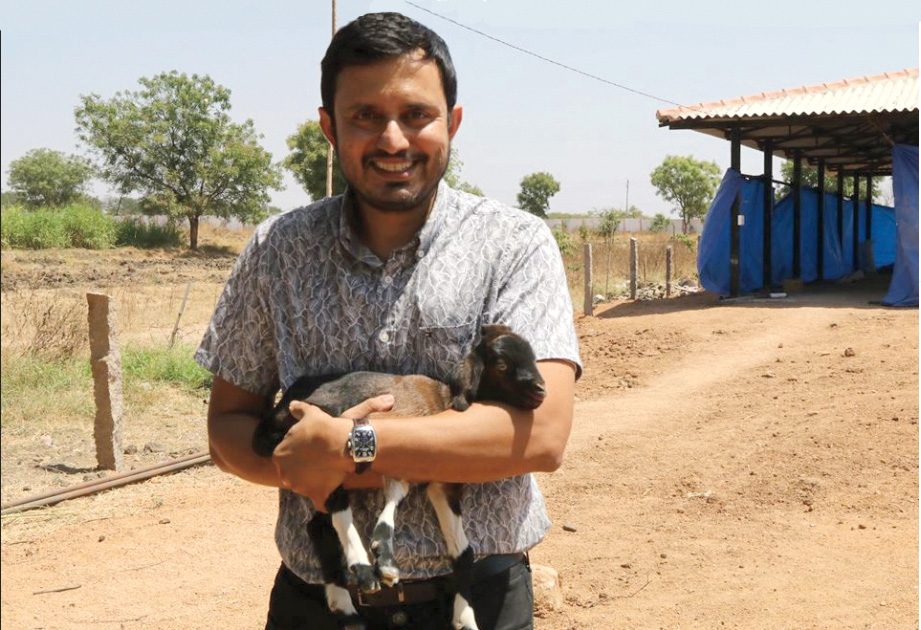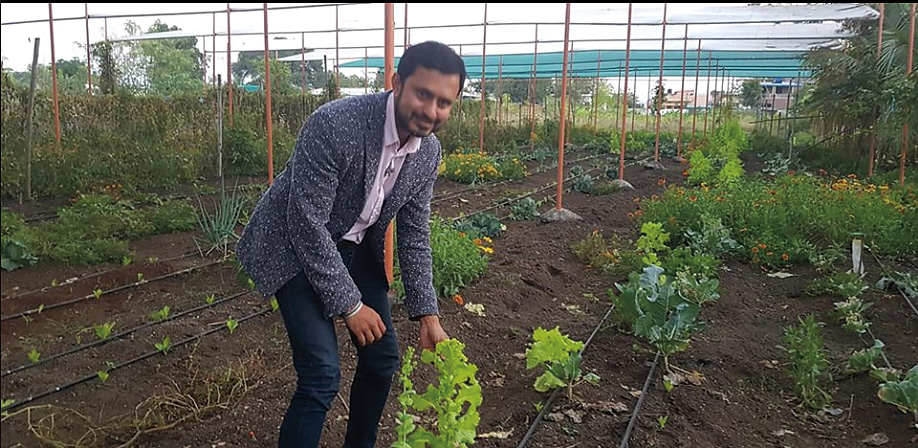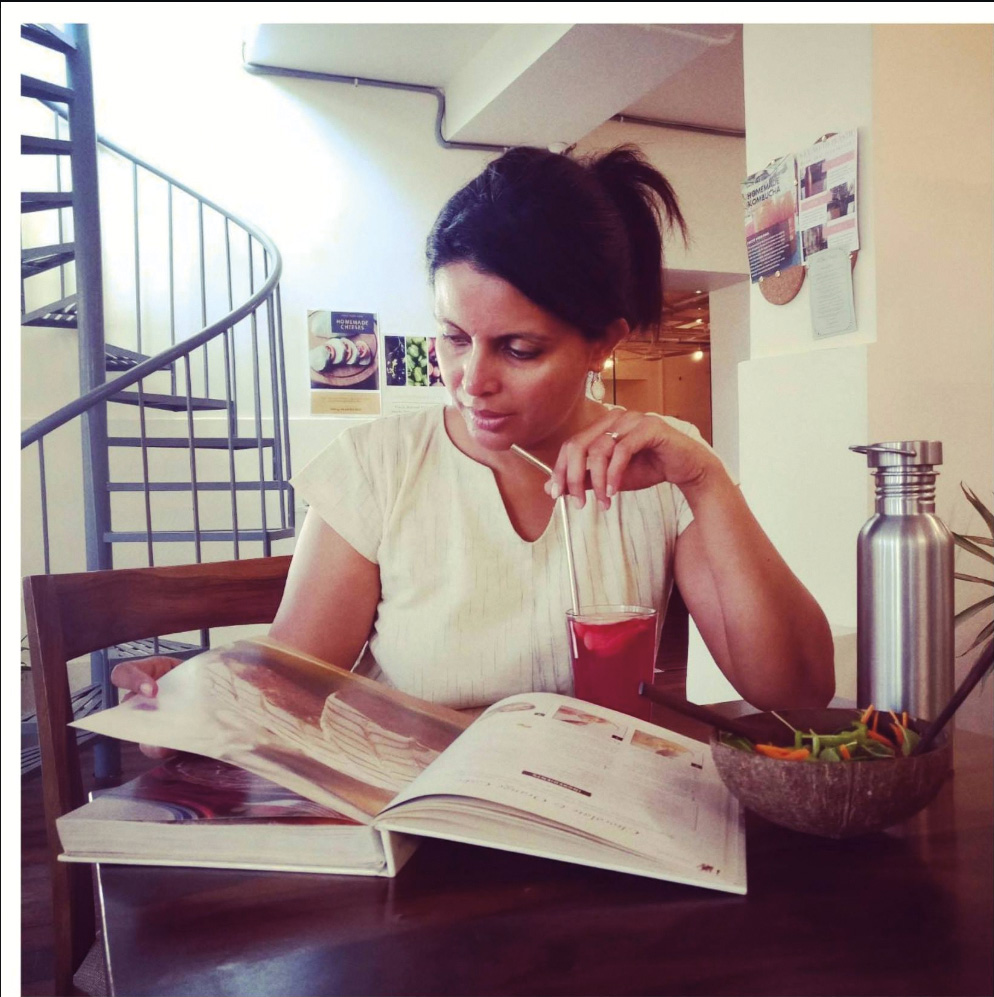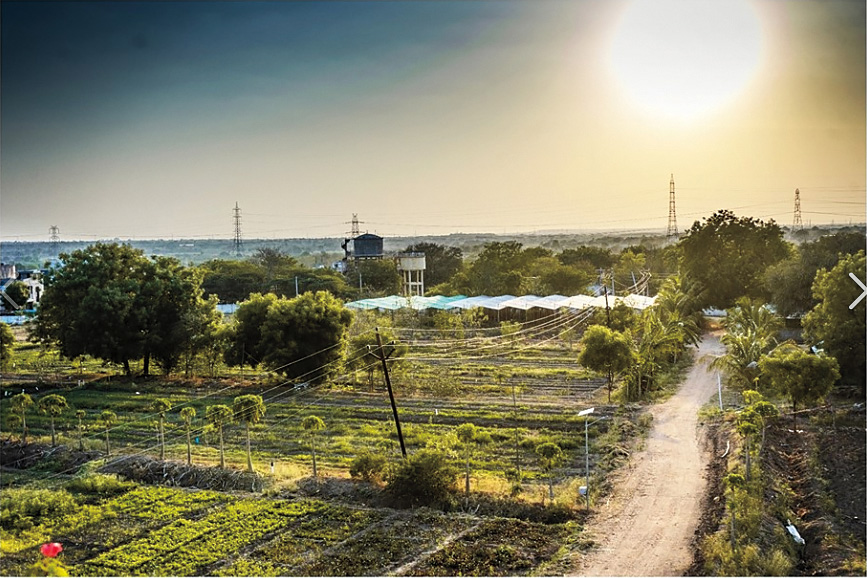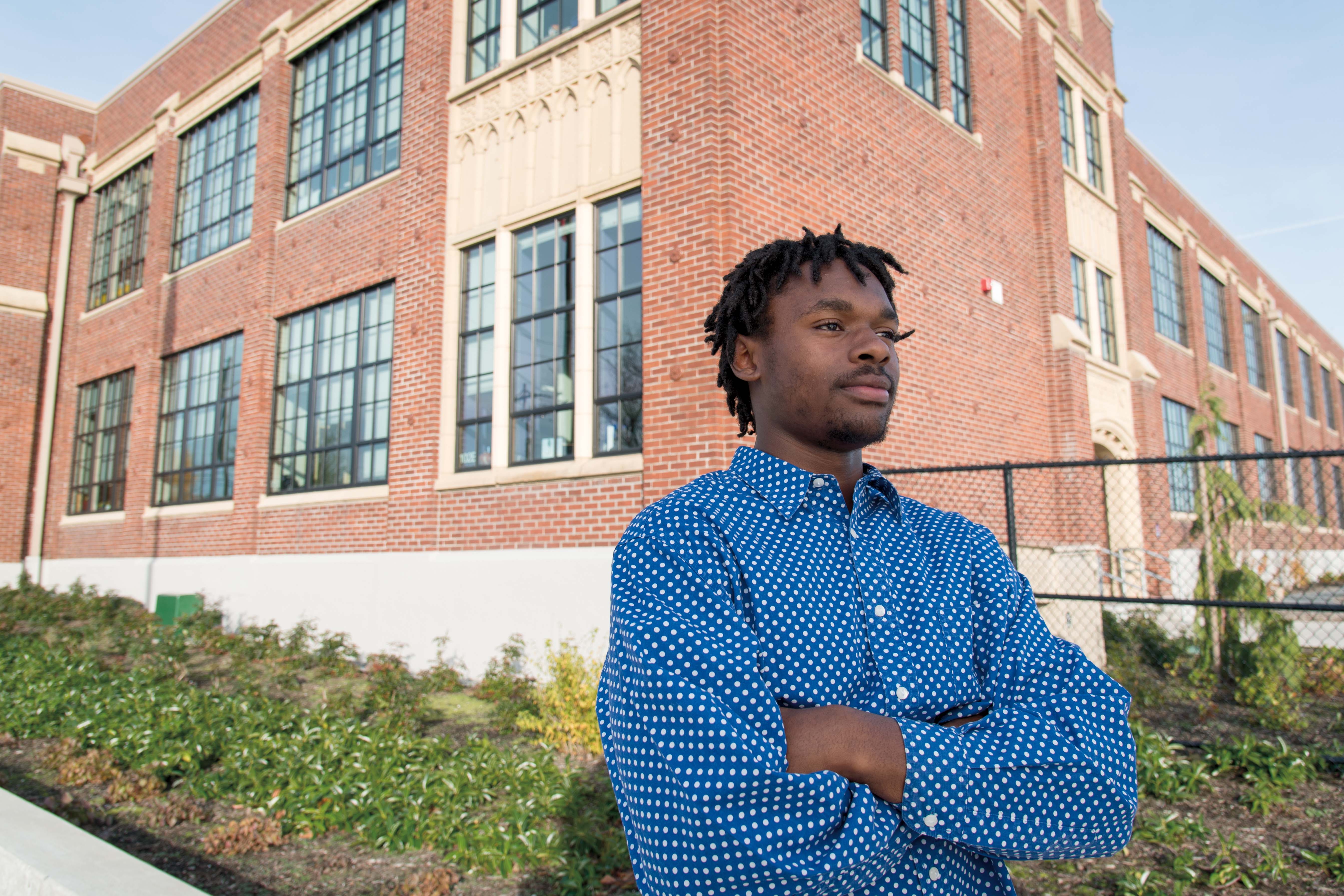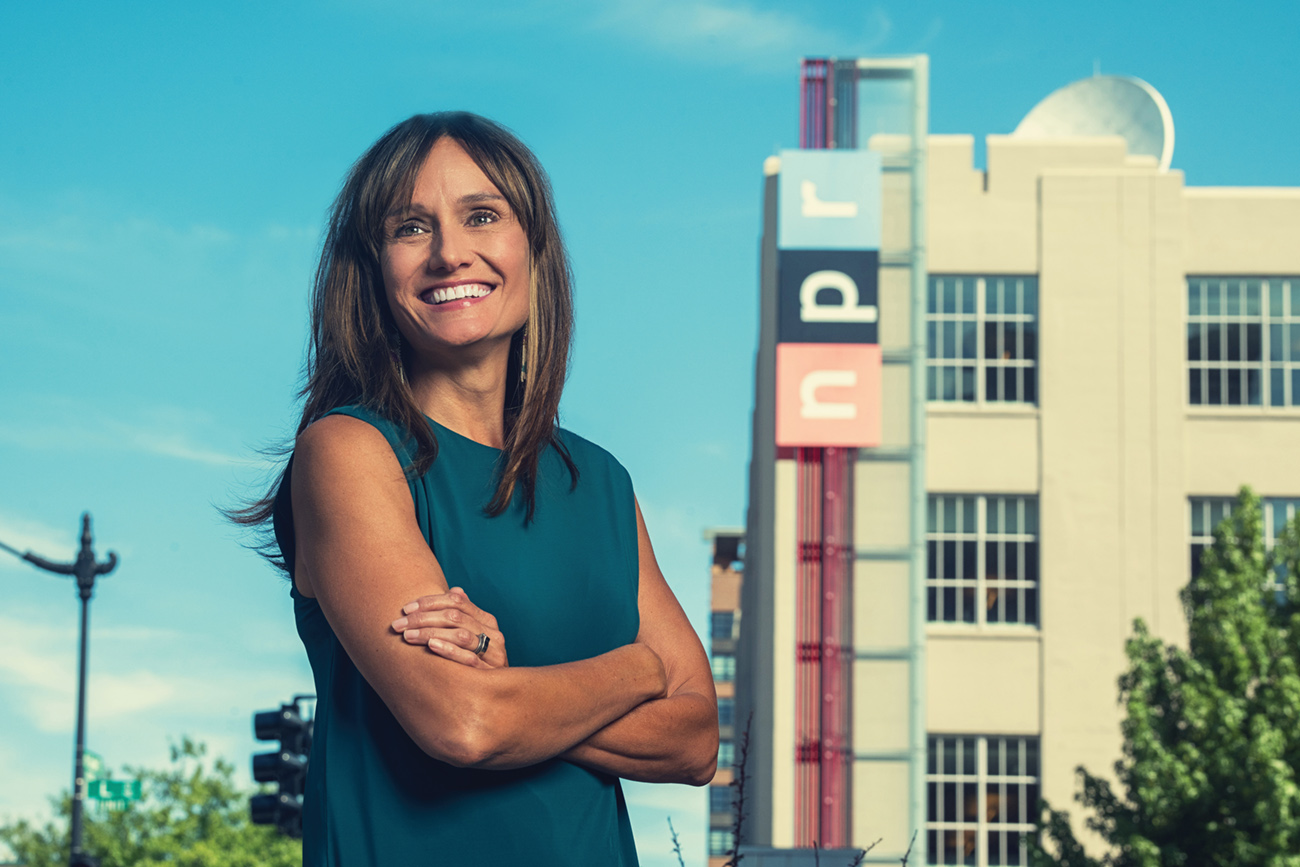The adventures of Ravi Mantha ’94 in five acts
Act One: Rising Prodigy
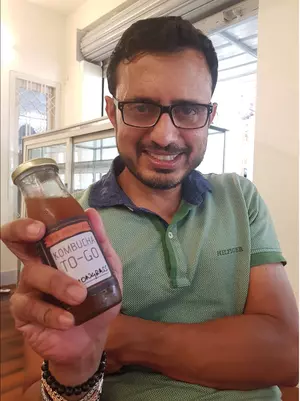
Ravi Mantha ’94 was working his first job after college, at the very bottom of Russell Investments, binding financial reports for clients, when he noticed something strange. “There were 25 people in [the room next door] punching in data all day from reports that came in on a fax machine and putting them into a computer,” he says. “I thought there must be a way to have this machine talk to that machine [instead].” When a woman in the data-entry group went on maternity leave, he seized the opportunity to solve what he saw as an inefficient process, and volunteered to cover her work as well as his own.
It was the mid-90s, the very beginning of the PC era. Ravi started to read the IBM software code book, and within about a month, he had written a program that enabled the machines to talk to each other. What he saw as “this awesome advancement” didn’t endear him to the data-entry supervisor. “She was livid,” says Ravi. But a different supervisor recognized Ravi’s talent and scooped him up for his own group. It was the end of binding financial reports in the production room. Two years later, Ravi was promoted again, and found himself working in Frank Russell’s London office as a research analyst reporting on money managers. Later, he landed a job as portfolio manager with Fidelity Investments in Boston.
By age 28, Ravi was second-in-command of a fund worth about $1 billion. Ten years later, the fund was worth $34 billion. He was the face of his fund, traveling about 70% of the time to meet big-name clients. “It was a heady job, meeting people like Steve Ballmer and Rupert Murdoch, going to conferences and field visits all around the world and running one of the larger institutional funds in the world,” he says.
But when a mentor cautioned him about working too long in a field just for the money when he didn’t actually need any more money, he started to consider his next move. “I knew I could just hang in there and milk it, play golf twice a week, but I also knew that I really didn’t have to work for somebody else ever again, so in 2011 I pulled the plug.” He was 38.
Act Two: Organic Farmer
Ravi could have taken his family anywhere, but something was pulling him home. He and his wife, Kavitha, both grew up in India, but their two children were born in Boston. Ravi hadn’t lived in India since he left Hyderabad to attend college at Puget Sound. “I missed home terribly,” he says. And he wanted his children to understand their parents’ home country. “We made a decision that we wanted [our kids] to have that very visceral experience of life,” he says.
Kavitha says that, actually, Ravi had been talking about moving home since the day they met, 20 years ago. “He told me he wanted to move back to India, become a farmer and be part of the political landscape there,” she says. “I’ve always been amazed at Ravi’s ability to set long-term goals and stay steadfast to achieve [them].”
Ravi’s success in the finance industry gave him the freedom to finally make that move, but it was his family that propelled him forward. “When you have children, it roots you to the world like nothing else,” he says. “You think about things like the safety of the food supply, cleanliness of the water, and what kind of world you are leaving behind for them.”
In Hyderabad, these environmental concerns aren’t theoretical—they’re present every day. The picturesque, ancient city situated along the banks of the Musi River in the southeast of the country is fast becoming one of India’s tech hubs—Amazon, Microsoft, Apple, and Facebook all have offices there—but 1.7 million of the city’s residents live in slums. The Musi River, which flows through the city, is extremely polluted, with hundreds of millions of liters of sewage released into the river daily.
Many of the vegetables grown in Hyderabad are farmed in the bed of that river. Fruits and vegetables from these farms have shown high levels of contaminants that have been linked to health problems in the surrounding community. To protect his family’s health, Ravi purchased land just outside Hyderabad where he could build an organic farm. “It was mostly a selfish reason that started it,” he says. “I didn’t trust the food supply ... So I figured we’d grow some vegetables so my kids could eat a decent meal.”
Soon, though, friends started coming to Ravi to ask how to grow or find organic vegetables like his, and word of the farm started to spread. He recognized the business opportunity and established Sage Organics as a small grocery store. Ravi was quickly gaining a reputation as a leader in health and nutrition in Hyderabad, but he wasn’t finished.
Act Three: Health Guru
Back in Boston, Ravi had become fascinated with bacteria. He wondered why there was a whole culture of antibacterial cleaners and disinfectants, and bacteria was portrayed as “little green monsters in Lysol ads.” He wondered why bacteria, a seemingly natural thing, was always considered bad, especially when found in the human body. “If you go swimming in a coral reef, you see it’s teeming with bacteria, life,” he says. “You have to be completely blind to think that this world teeming with life is bad. This is the natural ecosystem.”
He threw himself into researching the role of good bacteria in the body and started to write up his findings. “Now probiotics are big business, but at the time [in 2011], the idea of bacteria being helpful was not what people wanted to hear,” he says.
In 2012, Ravi’s book All About Bacteria, detailing how bacteria relate to our overall health, was published by HarperCollins. Ravi began working with clients who wanted advice on health, diet, exercise, and pain management, and continued his research in the field, which dovetailed with the work he was doing on his farm and in his grocery store. In 2015 he wrote The Baby Elephant Diet, on the importance of basic, biodiverse, natural fiber-laden foods, or prebiotics, for preventive health.
Meanwhile, Sage Organics was thriving. Hyderabad resident Ruchika Goel, one of Sage Organic’s most devoted customers, says ordering her groceries from Sage has changed the way she and her family eat, adding vegetables to their meals that she had never seen in her life. “I started relishing those vegetables after I started buying them from Sage,” she says. “My entire family has benefited. We all feel healthier.”
As the business grew, so did the farm, which Ravi made sure to locate west of the city in Shankarpalli, away from the Musi riverbed. He and the 40 day workers grow fruits and vegetables and raise chickens and buffaloes using no chemical fertilizers or pesticides. Instead, they focus on permaculture and natural fertilizer from the animals, and making sure the soil where the food is grown is full of healthy nutrients.
“More and more people have started realizing the value of the quality and the consistency [of Sage] products,” says Ruchika. “They have seen the health benefits and have become loyalists, too.”
Act Four: Cafe Owner
In 2016, Ravi and Kavitha expanded their business to include a farm-to-table organic restaurant called Sage Farm Café. It’s located in the same building as their grocery store, Sage Organics, in the Jubilee Hills neighborhood of Hyderabad. Light pours in from huge floor-to-ceiling windows over a small room filled with clean, minimal dark-wood tables and chairs. From the dining area you can see Kavitha in the kitchen. After earning an M.B.A. from Cambridge and building up many years of experience in the tech industry, she has started her own second career in Hyderabad—as a chef. “I’ve been fond of cooking and food for ages, but something about having access to a limited set of ingredients just lit a spark that got the café going,” she says.
Kavitha and her team of 12 create everything in the café from scratch, including ingredients such as cheese and vinegar. She relishes the challenge of creating a menu around only ingredients that are sustainable and in season. “I love elevating basic, humble ingredients,” she says. “As much as I personally love my exotic mushrooms, broccoli, and avocados ... to take simple gourds and local greens and turn them into something special gives me real joy.”
Sage Farm Café serves a seasonal assortment of salads, pizzas, soups, and desserts, all made with ingredients harvested from the farm that day. Depending on the season, diners might get to taste a green lentil dosa salad, served with greens, beets, and peanut powder, or a feta-spice pizza with house-made feta, onions, edible flowers, and a sweet glaze. These can be served with a lassi made from the farm’s own buffalo milk or house-made beetroot kombucha.
Ravi has been impressed by how Kavitha is taking their shared idea of safe, healthy, sustainable food to the tables of Hyderabad. “It’s like being Alice Waters in Berkeley in 1982,” he says. “The idea of farm-to-table is so new, and in this big city that’s becoming a big home to tech companies and expats, we’re finding a lot of people who appreciate our food.”
Kavitha says the café, farm, and grocery were never intended to be a commercial success, but thanks to Ravi’s books, his influence in the health and wellness world, and the support of their community in Hyderabad, the food culture is shifting, and Sage continues to grow. “Eating out has always been part of Hyderabad culture, but with food contamination at its worst, people are looking for safe alternatives,” Kavitha says. “Increasingly more and more restaurant owners are also opting for naturally grown and organic produce to encourage the trend. We are delighted to be a part of it.”
Ravi is more certain than ever that moving back to India was the right call. “I could have settled into a comfortable, conventional life,” he says. “But the world lies elsewhere. I can’t close my eyes and think of just myself and my family and think the world will take care of itself—it won’t.”
Act Five: Social Investor
Today, in addition to his work in health and wellness, Ravi sets his sights on the rest of the world’s troubles, too. He has investments in 25 active startups, from education to tech companies.
One of his favorite projects is acting as financial advisor to and cofounder of Bollant, a recycled-plate and -packaging company that runs a zero-waste facility and will soon be fully solar powered. Bollant addresses the dire need for more sustainable, eco-friendly options for packaging aside from plastic and Styrofoam, which litter the banks of waterways throughout India. They are doing this by turning agricultural waste into biodegradable and compostable plates and bowls. At the same time, Bollant takes on another wor- thy cause: employment for disabled people.
Srikanth Bolla, the company’s CEO and a graduate of the Massachusetts Institute of Technology, has been visually impaired since birth, and he wanted to create a company that gave opportunities to the many disabled, unemployed people in India. Half of Bollant’s employees are differently abled.
“Srikanth is an amazing entrepreneur and a true source of inspiration to me,” Ravi says. “I am confident that his mission of building a world-class company in recycling and sustainability will come true within a decade.”
Ravi is also working to introduce a policy framework that would bring liberal arts education, which he credits for making him such a multidisciplinary thinker, to India. (He feels that the country focuses too much on technical education.)
Beyond the formal education he received at Puget Sound, his time there prepared him for his varied work experience in another way. When he first arrived on campus, he had no choice but to take on every job he could find. The Trustee Scholarship he received funded tuition, but he needed to pay for room and board. He worked in the library, in food service, and as a campus tour guide. He was also the class senator of both his first- and second-year classes and a student member of the Puget Sound board of trustees, and was a student in the Honors Program and Business Leadership Program. “I was everywhere,” he says. “If you didn’t see me in the student center doing political stuff, I was probably down in food service making burgers. But I loved it—all of it.”
Being everywhere and doing everything helped Ravi hone a motto—“Make yourself useful”—which continues to drive the way he works today. He knows that he and his family are in a fortunate position, but he doesn’t want his usefulness to end with just the life he can provide for his own children. “Accumulation of wealth isn’t useful,” he says. “But putting that money into innovative startups and spreading it out and making a social impact with it, is.”

